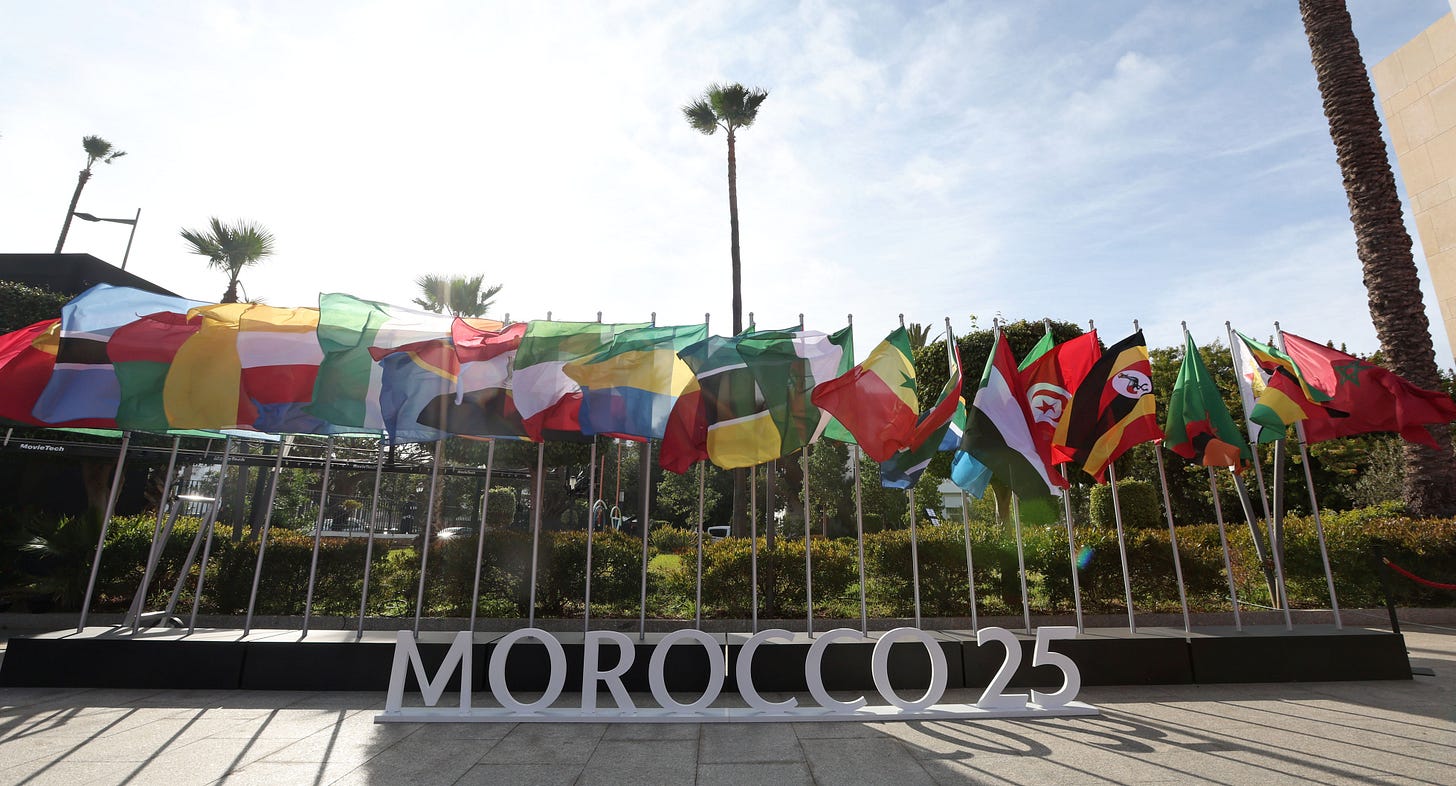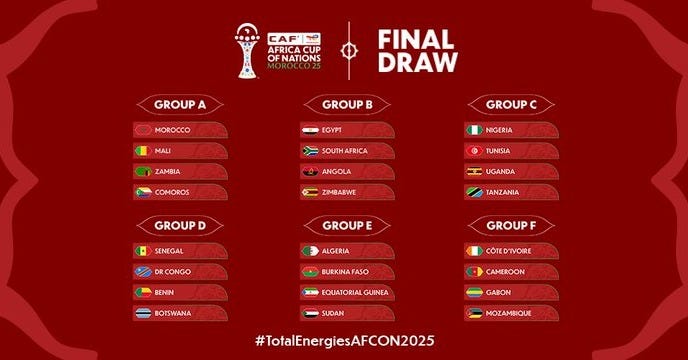Christmas in Casablanca
The Africa Cup of Nations draw took place but conspicuously any news from the WAFCON was gone.
As I’m writing this, I’m looking out my window to grey skies and dreary Scottish rain, wrapped up in my thermals and thoroughly miserable.
And yet I can’t help but smiling, as a ray of warm sunlight travelling all the way from Morocco penetrates the colourless heavens and enters my heart. That ray of sunshine is the 2025 AFCON draw and the knowledge that in eleven months’ time I will be in Rabat watching Algeria take on Burkina Faso, or perhaps down the road in Casablanca, Agadir or Marrakesh watching any other of the three games on the 28th of December. One year out and we have our draw.
Perfectly balanced
Perhaps the biggest headline in terms of these groups is that there is no headline and there is no outright group of death.
Last AFCON we saw some mega groups in the shape of Senegal-Cameroon-Guinea-Gambia and Tunisia-Mali-South Africa, but this year there doesn’t seem to be that kind of competitive group that stands out above the rest. Perhaps the one exception is Group B where Mohamed Salah’s Egypt are joining the southern African contingent of South Africa, Angola and Zimbabwe.
Under former Pharoah Hossam Hassen, the kings of Africa have looked emancipated from the football of former Portuguese coaches Carlos Queiroz and Rui Vitória, only losing once in 2024 to Croatia in a friendly. Mohamed Salah continues to make a mockery of father time and is in the best form of his life. Meanwhile a younger generation of attacking talent like Omar Marmoush, Ibrahim Adel and Emam Ashour are beginning to emerge and hopefully can share some of that immense burden that Salah has shouldered for the best part of a decade.
Bafana Bafana are at their highest point since they won the AFCON in 1996. Led by Hugo Broos, South Africa have bucked the trend of nations more and more relying on foreign based players and dual nationals. Instead, Broos ignored some talented players from abroad to take an almost entirely locally based squad to the semi finals last year, and this year they are looking ever stronger.
And after retaining the services of head coach Pedro Gonçalves, Angola were the surprise package of AFCON 2023 but don’t look to be slowing down. And rounding out the group is a Zimbabwe side that blow hot and cold but retain some talented individuals in the shape of Marvelous Nakamba, Marshall Munetsi and the aging but ever mercurial Khama Billiat.
Morocco welcome Mali, Comoros and Zambia to Rabat as the hosts look to banish their AFCON hoodoo that has stopped them from adding to their solitary AFCON title all the way back in 1976. With a country as obsessed with football and their country as Morocco, the support and pressure on the Atlas Lions will be unlike perhaps anything ever witnessed at the AFCON, certainly in the last decade at least. With a team full of World Cup heroes and led by the brilliant Walid Regragui, the hosts will be heavy favourites to win the competition.
They will first have to get out of a tough group with perennial dark horses Mali led by the wily Tom Saintfiet, a Zambia side that can thrash anyone or be thrashed on any given day and the returning Comoros, who have performed the miracle of returning to Africa’s biggest stage but have shown they can mix it with the very best.
Elsewhere, a reinvigorated Senegal and holders Côte d'Ivoire have been handed softer groups than they were afforded last year. Meanwhile my award for arguably the weakest group goes to Group C where last year’s finalists Nigeria will be joined by a Tunisia side in perpetual crisis and East African rivals Uganda and Tanzania who will both simply be looking to build towards 2027 when they will host the AFCON with (or perhaps without if they can’t get their act together) Kenya.
The female Elephant in the room
Amid the glitz and glamour of the draw in Rabat we also found out the schedule and host cities. Tangier, Agadir, Fes, Marrakech, Casablanca and Rabat will play host to the eight groups with Morocco kicking off against Comoros in the Prince Moulay Abdellah Stadium in Rabat (by the end of this tournament this may be my most frequented stadium).
However, the eagle eyed, or even those simply interested in women’s football will have noticed that we still haven’t heard where the Women’s AFCON will be held. That’s right, with just over five months to go, we still don’t know where Africa’s premier women’s competition will be held in Morocco. We don’t even know the schedule beyond the start and finish of the tournament.
All of this comes despite the previous WAFCON being the most successful in the history of the competition, in large part because it was held in Morocco. Despite there being limited interest in the tournament initially, the Moroccan public fell in love with stars like Ghizlaine Chebbak, Fatima Tagnout and Sanaâ Mssoudy. The team massively overachieved and reached the final where they lost out to first time winners South Africa. I will argue until the cows come home that the atmosphere generated in the Moulay Abdellah Stadium (told you it’s a favourite) for that semi final win against Nigeria was the best atmosphere ever experienced in women’s football anywhere in the world.
This summer should be another leap forward in women’s football in Africa taking its rightful place alongside the giants of the game in Europe and America. Instead it is increasingly being treated as an inconvenient footnote to CAF and Morocco.





I can't wait for AFCON!